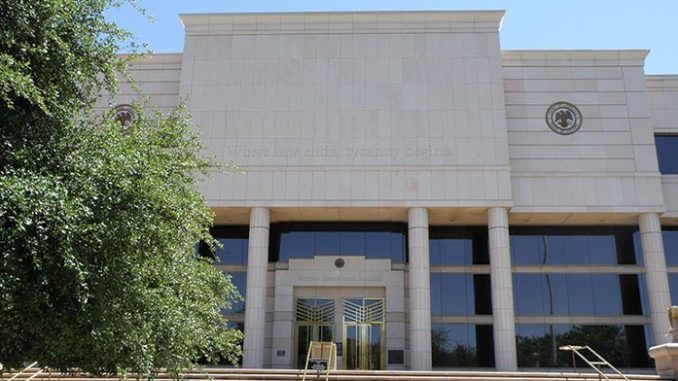
The Arizona Supreme Court ruled quickly and unanimously on Tuesday that some or all provisions of four budget reconciliation bills (BRBs) passed by the Arizona Legislature and signed by Gov. Doug Ducey this summer cannot go into effect.
Those provisions, including new election laws and bans on public and charter school mask mandates, were ruled unconstitutional by a Maricopa County judge in September due to how the legislation was written.
“While the Court does not adopt the trial court’s reasoning in its entirety, it is ordered unanimously affirming the trial court’s judgment,” Chief Justice Robert Brutinel wrote about two hours after the justices took part in oral arguments on whether it matters if non-fiscal legislation is contained in appropriation bills or BRBs, and whether the Arizona Supreme Court has authority to second guess elected lawmakers who pass the legislation.
A formal opinion will be issued “in due course,” Brutinel noted.
“I fear that the Court, in attempting to uphold the Constitution, may have neutered the last part of government dedicated to preserving liberty,” said attorney Alexander Kolodin of the Davillier Law Group.
The justices’ decision affirmed a controversial ruling by Judge Katherine Cooper, who determined the Republican-majority in the 2021 Legislature violated the Arizona Constitution in how they constructed some or all of four budgets bills. It is unclear from the Brutinel’s order what the justices based their decision on, given that the majority did not agree with how Cooper came to her conclusion.
Cooper ruled that four bills challenged by the Arizona School Boards Association and several other groups violated a constitutional provision requiring the content of a bill to cover only a single subject. She said that lawmakers tacked on myriad policy legislation not directly related to appropriations, expenditures, or revenues.
Three of the bills concerned the budgets for K-12 Education, Health, and Higher Education. Cooper allowed the budgetary provisions of those bills to take effect Sept. 29 but essentially voided dozens of high-interest provisions unrelated to fiscal operations, such as COVID-19 legislation, election ballot paper, critical race theory, and suing teachers who organize staff or student walkouts.
The judge had also ruled the titles of the four budget bills were not in compliance because they did not adequately describe the content of the bills, thus failing to ensure citizens had fair notice of what the bills addressed.
The entirety of the fourth budget bill, SB1819 titled Budget Procedures, was declared unconstitutional by Cooper. That bill included nearly 30 substantive policy legislation unrelated to the state budget.
For years the Arizona Legislature has engaged in the practice of “log-rolling” budget bills. And that point was argued by Beau Roysden of the Arizona Attorney General’s Office put forth, arguing that lawmakers are in charge of passing legislation and how they do so should not be second-guessed by the judiciary.
The Supreme Court’s quick decision Tuesday was followed by a ruling from another Maricopa County judge concerning a legal challenge by the City of Phoenix to the Criminal Justice budget reconciliation bill. The ruling in favor of the city found three provisions of the Criminal Justice BRB violated the same single subject and bill title requirements.
The next regular session of the legislature begins Jan. 10. It is unclear whether Gov. Doug Ducey will call a special session before then in order to re-pass the voided legislation as individual bills.
Ducey, who championed the 11-bill budget package, issued a statement through a spokesman after the Supreme Court announced its ruling.
“There are three separate co-equal branches of government, and we respect the role of the judiciary — but the court should give the same respect to the separate authority of the legislature,” spokesman C.J. Karamargin said.
The specific provisions of the BRBs which are effected by Cooper’s title / single subject ruling are: Sections 12, 21, and 50 of HB2898 (K-12 Education), Sections 12 and 13 of SB1824 (Healthcare), Section 2 of SB1825 (Higher Education), and the entire 55 pages of SB1819, the Budget Procedures bill.
